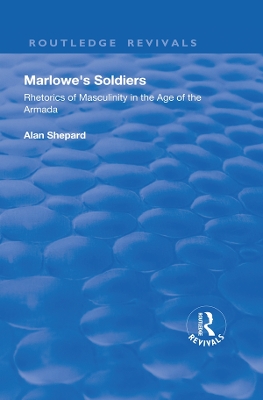Routledge Revivals
1 total work
This title was first published in 2002: In the topsy-turvy 1580s and 1590s, as the episodic Anglo-Spanish war became the greatest threat to "English" security since circa 1066, Marlowe rose up in the London theatres like some Phaeton of the entertainment industry, taking war itself as a central subject of his art. This book reads his plays - especially "Tamburlaine", "Edward II", "The Massacre at Paris", and "Doctor Faustus" - as part of a bright new conversation then taking place in London about the nature of state security and martial law, the decorum of playing "the soldier" on stage, the rhetoric of warfever, and the necessity for draconian prescriptions about English manhood. Those public conversations, spilling out of Whitehall, the church pulpits, and the pubs, took center stage during the few years the playwright worked in London. The author argues that the Marlowe plays wrestle with the philosophical assumptions about the nature of war and the role and status of soldiers in English culture.
